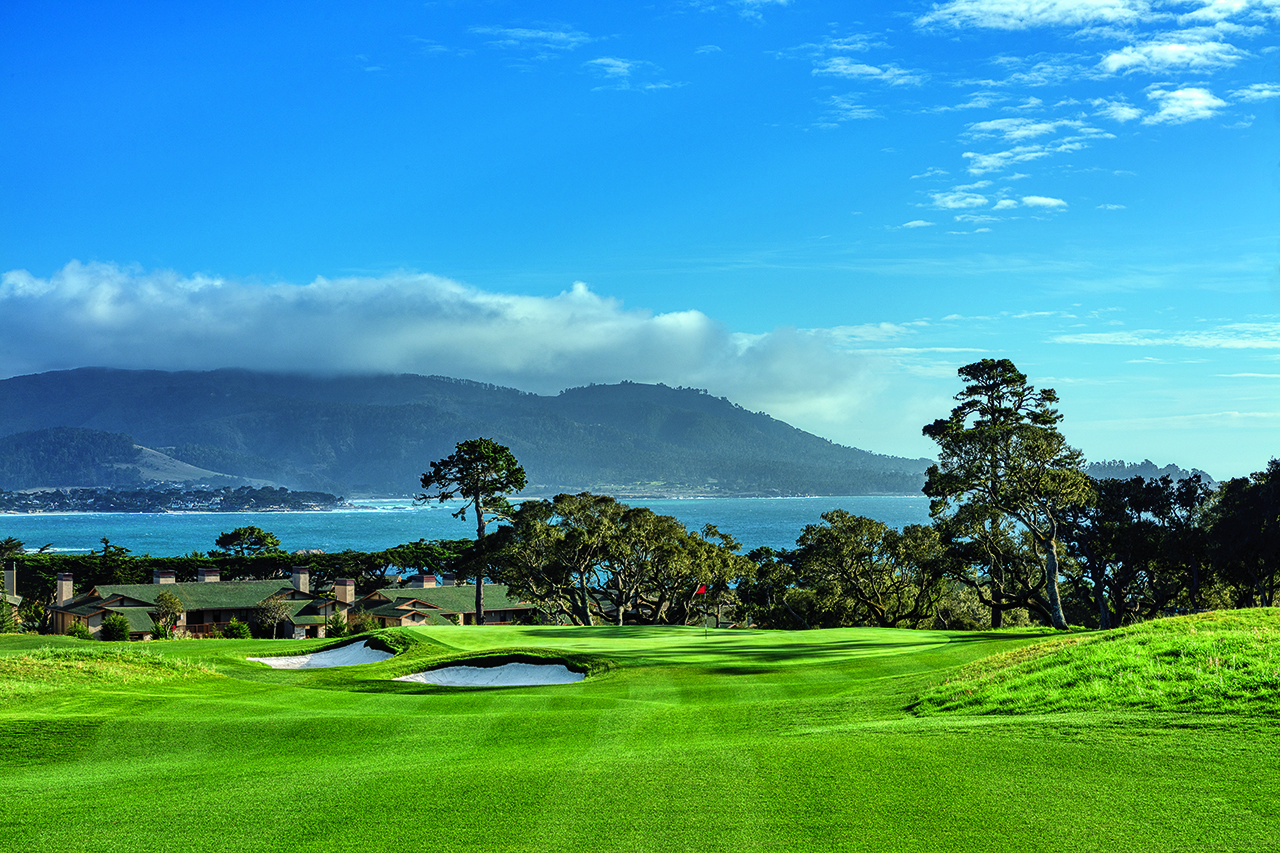Over the past 15 years, numerous high-profile short courses have popped up around the country. Examples include Bandon Preserve at Bandon Dunes Golf Resort (13 holes), The Cradle at Pinehurst (nine holes) and The Sandbox at Sand Valley (17 holes), each a short course within a popular multi-course golf destination. Each has a well-regarded designer and each serves to keep resort guests on property.
Typically full of par 3s, they are fun, bold, quick and an ideal complement to the big courses. At the end of the day, the primary users are men on buddy trips.
Pebble Beach has had a short course for more than 50 years. However, the design and marketing of the former Peter Hay Golf Course never provided that ideal complement to the big courses at Pebble Beach Resort, and guests rarely added it to their golf itinerary.
That has changed.
After a complete reimagining of the site by Tiger Woods, The Hay opened last Friday. The new layout is bold and honors the history of Pebble Beach. Architecture aficionados will recognize the Biarritz, the thumbprint and the replica of the seventh hole at Pebble Beach Golf Links. Novices will notice you can putt off the tee on many holes.
Like Bandon Preserve, The Cradle and The Sandbox, The Hay is fun, quick and beautiful. It is relaxed (eightsomes allowed) and communal, with plenty of crosstalk from hole to hole and group to group. Simply put, it provides an ideal complement to the other resort offerings.
The Hay is different from the others in size. Sitting on roughly eight acres, the holes are short. Very short. The longest is 100 yards, with four holes at 61 yards or shorter. And no one cares. Golfers know it is different and meant for fun.
While success will be determined over time, the early returns are noteworthy.
Three days after opening, the tee sheet is full morning through evening. Golfers playing Pebble, Spyglass Hill or Spanish Bay are adding a stroll around The Hay before or after their rounds. In less than a week, the tees have been moved to mats due to the number of divots. And with a $65 green fee for resort guests, it doesn’t break the bank.
Which begs the question: If these courses work at resorts, why can’t they work in more urban and suburban locations?
Wouldn’t it be great if the people playing were kids? Or local residents who bike over? Wouldn’t it be great to run out with the family for a summer loop after dinner?
Wouldn’t it be great to have a lunch meeting with sticks in hand? A round only takes 45 minutes.
At eight acres, the development costs are reasonable, and the impact could be significant.
Think about your nearest big city or even a small town. Odds are there is an underperforming golf course or public park where a short course could be a wonderful community asset. A place where kids could learn to play. A place that connects residents of different backgrounds.
This week Golfweek reported that the PGA Tour will offer $40 million in bonus money to players who move the needle. Think what that $40 million could do for communities across the country? A lot more than it will do for 10 players who are already multi-millionaires.
The USGA has long used the slogan For The Good of the Game. Just think if the governing body used its resources to help fund short courses in towns across America.
Think about the golf manufacturers. How cool would it be to show up at courses like these knowing you didn’t need to have clubs or balls because they were provided?
Golf has gained a lot during COVID-19, with the number of rounds played in the U.S. soaring as people search for outdoor recreation. I’m hopeful the powers that be in golf will seize this opportunity to invest in future generations of golfers. A great way to do it would be taking courses like The Hay to cities and towns across America.

